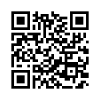SAJAK-SAJAK RENDRA UNTUK PEMBELAJARAN EKOLOGIS DI ERA GLOBAL
Downloads
Abstract
(Title: Rendra's Poems for Ecological Learning in the Global Era). This study aims to describe environmental functions, ecological paradigms, and ecological learning competencies that can be developed from Rendra's book Empat Kumpulan Sajak. The study was conducted in a qualitative descriptive manner. The source of the research data is the WS Rendra poems in the book Empat Kumpulan Sajak published by Pustaka Jaya (print in 2016). Data is taken purposively, in the form of poems containing ecological content. Data is recorded and listened to, then analyzed through ecocritical reading. The results of the study are as follows. First, the environment in Rendra's poems serves as a means to achieve aesthetic in poetry, to convey messages and convey environmental issues. Second, in a society that respects nature, the environment is a symbol of immortality and a source of peace, but in a society that begins to ignore nature, the environment changes function into an object that is only explored by its wealth and final disposal. Third, competencies that can be developed in literary learning through Rendra's poems related to environmental issues include cognitive, affective, practical, and spiritual competencies.
Keywords: poetry, environmental issues, ecological learning, literary learningDownloads
Buell, L. (et.al). (2011). Literature and Environment. Annual Review Environment Resource. Harvard University. Vol. 36, p. 417-440.
Pradopo, R D. (2002). Pengkajian Puisi (cetakan kedelapan). Yogyakarta: Gadjah Mada Univesity Press.
Rendra. (2016). Empat Kumpulan Sajak (cetakan kesebelas). Jakarta: Pustaka Jaya.
Riffaterre, M. (1978). Semiotics of Poetry. Bloomington & London: Indiana University Press.
Teeuw, A. (1984). Sastra dan Ilmu Sastra: Pengantar Teori Sastra. Jakarta: Pustaka Jaya.
The authors who publish this journal agree to the following requirements. The author retains the copyright regarding the work being simultaneously licensed below Creative Commons Attribution ShareAlike License.

Jurnal Diksi by Faculty of Languages, Arts, and Culture, Universitas Negeri Yogyakarta is licensed under a Creative Commons Attribution-ShareAlike 4.0 International License.
Based on a work at http://journal.uny.ac.id/index.php/diksi




















